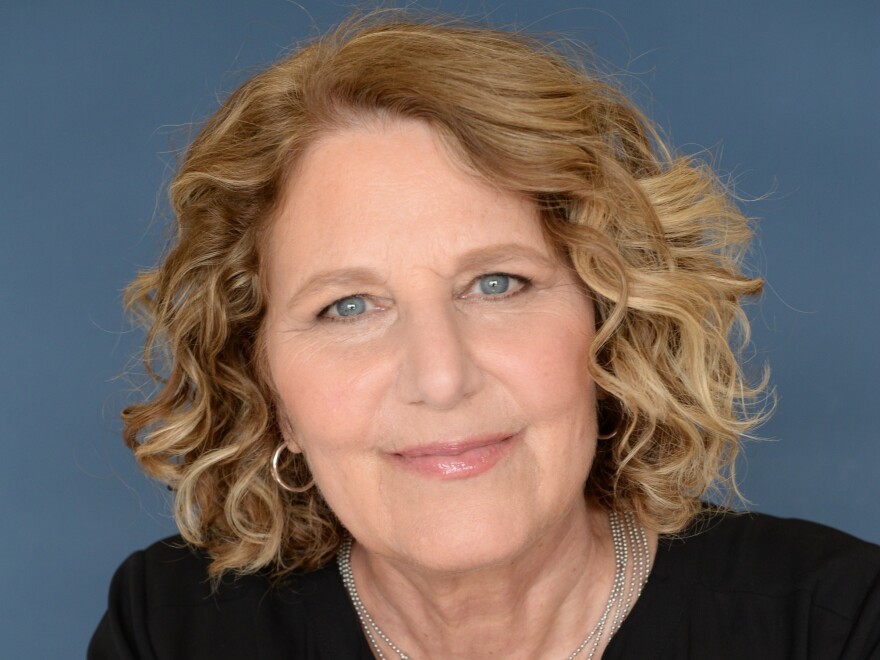In July 2003, an 86-year-old man mistakenly drove his car through a farmer's market in Santa Monica, California, and killed 10 people.
The public was enraged. Some called him a murderer.
Local resident Maryann Gray heard about the incident and wrote into NPR. Not with outrage, but with compassion.
"Like most people, I'm horrified and saddened by the devastating car accident," Gray wrote in a letter she also read on air. "My heart goes out to those who lost family members and friends. But unlike most people, my deepest sympathies lie with the driver."
She, too, had accidentally killed someone — decades before. When she was 22, an eight-year-old boy had darted out in front of her car.
"Although the justice system absolved me of any legal responsibility, I blame myself for his death. For 25 years, I've thought of Brian every day," Gray told NPR.
That was the first time Gray had shared her story publicly.
"As I apologize to Brian and his family in my soul every day, I also try to forgive myself," Gray said at the time.
She braced for hate mail after her story aired, but instead, support poured in — including from other people with similar experiences. And so, she dedicated her life to advocating for people who had accidentally caused someone else's death.
Just a few days ago, after suffering complications with a serious medical procedure, Maryann Gray herself died at the age of 68.
The ripple effect of kindness
For reverend Chris Yaw, finding Gray was like finding a soulmate.
"Somebody who really shared this deep sense of hurt, because I think it comes out of love. Maryann was such a loving person," he told NPR this week.
Yaw also unintentionally caused someone's death in 2013. So, a few years later, when he learned about Gray's blog Accidental Impacts, he reached out to her right away.
An idea Yaw and Gray often talked about was the belief that "pain that is not transformed is transmitted," he said. "And she really worked hard to transform that harm into something good."
For Gray and Yaw, that "something good" meant starting an organization and support group for people who had unintentionally killed or seriously injured others. It's called The Hyacinth Fellowship, and they also do research on unintentional deaths.
For example, according to their data, somebody accidentally kills someone else every 18 minutes in the United States.
Bishop Mark Bourlakas was also involved in an accident that took someone's life when he was a teenager.
"The organization gives people who have experienced this particular kind of trauma a place to share and feel like there is some hope, that maybe I too can find my way through what at this moment feels like impossible," he said.
Bourlakas is also a board member of The Hyacinth Fellowship and said that through the years, he saw how the way Gray approached people without judgment drew them to her, and probably saved many lives. And somehow, he said, she managed to keep a lightness about her.
"Sometimes when you're talking about this work, it's this grim, dark thing," he said. "But she had a wonderful laugh. And she could joke around a little bit with people, which you need levity sometimes in these moments."
Before she died, Gray was in the process of writing a book with Yaw — a guide of sorts, to be titled, Accidental Killing, A Survivor's Handbook. Yaw said nothing like it existed, and he planned to finish it in the year to come.
"I have to," he said. "You can't bring somebody back from the dead. But what you can do is live a life to help others in honor of them. And so I think this is very much honoring Maryann and honoring her work."
He hopes their book and Gray's legacy will help people lead with compassion, just as she did.
"We can never make up for what we did," Gray told NPR in 2021. "We can never even the scales. But we can regain a sense of agency and efficacy that we not only do bad things, but we can also do good things in the world."
Copyright 2023 NPR. To see more, visit https://www.npr.org.



